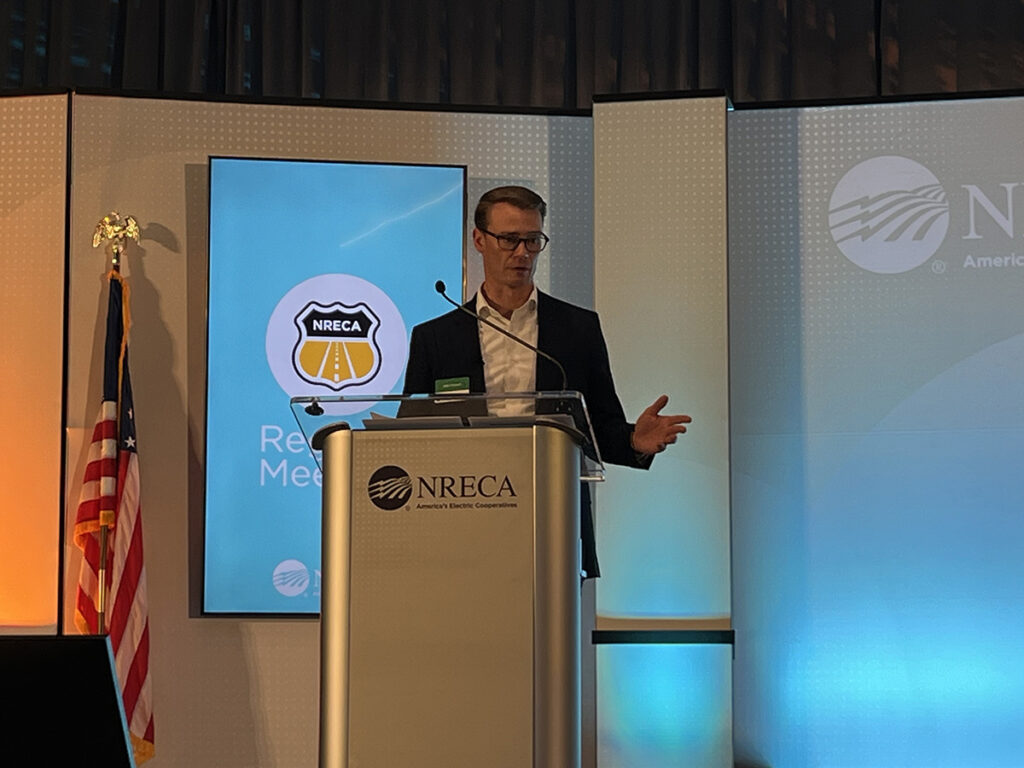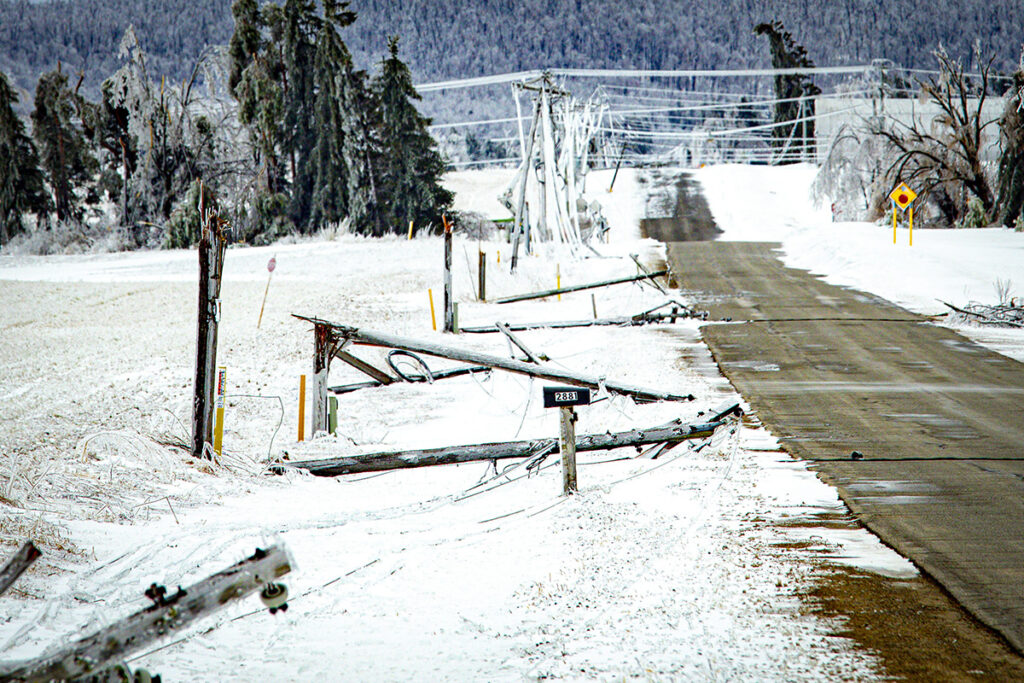PROVIDENCE, Rhode Island—The Federal Emergency Management Agency is vital to helping electric cooperatives recover from natural disasters, and they must fight to preserve FEMA and make it more efficient, a panel of co-ops said at NRECA’s Regions 1&4 Meeting.
FEMA provides critical funding, including through its public assistance program, to help co-ops restore service more affordably after tornados, hurricanes and other catastrophes.
The agency “is a big deal. It’s a unifying issue for our members and our consumer-members at the end of the line,” NRECA Legislative Affairs Director Will Mitchell said.

He noted that 99.5% of congressional districts received a major disaster declaration since 2011—a key step to unlock FEMA funding. About 400 of NRECA’s 900 member co-ops have received FEMA public assistance since 2020.
“If the public assistance program goes away as we know it, the consumer-members we are all here to serve with safe, affordable, reliable service would face significantly higher electric rates [after a storm]—double or triple what they are paying now,” Mitchell warned.
But changes are needed to speed FEMA funding for co-ops.
An NRECA-backed bill in Congress—the Fixing Emergency Management for Americans Act— would obligate funding for emergency work within 120 days of a request. The bill, which recently cleared a key House committee, also now has a provision championed by NRECA to forgive interest on loans that co-ops take out for disaster recovery until they receive FEMA money.
‘We Have to Fight’
Great Lakes Energy in Michigan faced outages across more than half its system after a massive ice storm in late March.
The storm affected nearly 67,000 of the Boyne City, Michigan-based co-op’s 130,000 members. It damaged 4,000 miles of power line and forced the replacement of almost 3,200 poles in a two-week period—about four times the co-op’s annual average.
Nearly six months later, cleanup of trees and other debris is ongoing, and Great Lakes Energy faces total potential storm-related costs of about $155 million, significantly more than its typical annual storm budget of $2.5 million. Interest on lines of credit to help with the recovery are about $10 million per year.
“We have to fight to recover these costs, because anything we don’t recover goes to our members,” Great Lakes President and CEO Shaun Lamp said during the Regions 1&4 meeting panel.
Although some co-ops have not faced a FEMA-level emergency, “it’s real, and it can happen to anybody,” he said.

Michigan was recently approved for FEMA funding to cover emergency restoration work, such as debris removal. But the federal government’s disaster declaration did not include category F for utility repairs.
Great Lakes Energy is encouraging its members to support a Voices for Cooperative Power campaign asking the president to reconsider the decision. As of Sept. 15, over 12,000 Michiganders have signed the petition.
Adequate FEMA support and the proposed reforms in the House bill would go a long way to helping Great Lakes Energy rebound while keeping costs down for members, Lamp said.
“If we could get [loan interest] recovered, that would be absolutely amazing,” he said.
FEMA funding “is very meaningful for the co-op and meaningful for those areas” hit by disasters, Vermont Electric Cooperative CEO Rebecca Towne said. In the past 15 years, the Johnson-based co-op has experienced 10 events that prompted it to seek FEMA support and incurred $20 million in damage, much of it reimbursed by the agency.
FEMA support for disaster recovery and hazard mitigation helps co-ops make their infrastructure more resilient against future disasters, Towne said.
“It is a great opportunity to not only improve our resiliency and our storm response but also be able to offset some of our capital dollars,” she said.
But Towne noted the long timelines for initial reimbursement, which can take over two years after a storm, during which co-ops pay interest on recovery loans. FEMA can also be inconsistent on what disasters it will reimburse, and turnover among agency project managers can create further delays, she added.
Co-ops have also had trouble getting FEMA to understand the need for certain investments.
When Hurricane Helene devastated parts of North Carolina in 2024, one of Haywood EMC’s substations flooded for the second time in 20 years. FEMA has agreed to fund the relocation of the substation, a project that is “a matter of keeping the lights on,” CEO Tom Batchelor said.
But the head of the Waynesville-based co-op said explaining their needs to FEMA and the work that must be performed can be challenging.
“FEMA does not seem to know how utilities operate, in particular cooperatives,” he said.
NRECA is doing its part to promote improvements at FEMA, including those proposed in the House bill. The association is engaging co-op CEOs, general managers and co-op advocates to urge support for the legislation.
“There’s a role for you to play, and your engagement really is critical in that process,” NRECA’s Mitchell said.
Molly Christian is a staff writer for NRECA.